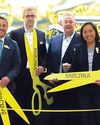
Over the previous centuries, global pandemics of infectious diseases, such as smallpox, cholera, and influenza, have periodically threatened the survival of entire global population. By the mid-twentieth century, safe, effective, and affordable vaccines and the increasing availability of antibiotics had reduced the toll of infectious diseases in the high-income countries (HICs). Not until the second half of the twentieth century did large scale efforts begin to better control infectious diseases in low and middle-income countries (LMICs), where the infectious disease burden was greatest and highly varied.
The decline of the vaccine-preventable diseases has contributed to a recognition of the potential for using vaccines to prevent other infectious diseases, including acquired immune deficiency syndrome (HIV/AIDS), tuberculosis (TB), malaria, hepatitis C, and a variety of neglected tropical diseases (NTDs). However, emerging pandemic viral infections remain a constant threat.
The most common examples of viral infections include SARS (severe acute respiratory syndrome), MERS (middle east respiratory syndrome), and Ebola and Zika viruses as well as, perennially, influenza, and chikungunya infections. Compared with antibiotics to treat bacterial infections, relatively few antiviral drugs have been developed to treat these emerging viral infections. Therefore, the most important intervention is to break the chain of transmission.
This need has become all the more necessary with the recent COVID-19 outbreak. Easy mode of transmission, nature of the virus, population density, environmental condition, social culture are the major contributors to its rapid spreading across the globe. But in order to break the chain of transmission, one needs to understand the transmission dynamics of this ongoing pandemic.
This story is from the August 2020 edition of Bio Spectrum.
Start your 7-day Magzter GOLD free trial to access thousands of curated premium stories, and 9,000+ magazines and newspapers.
Already a subscriber ? Sign In
This story is from the August 2020 edition of Bio Spectrum.
Start your 7-day Magzter GOLD free trial to access thousands of curated premium stories, and 9,000+ magazines and newspapers.
Already a subscriber? Sign In

Sartorius Stedim Biotech opens new centre for bioprocess innovation in US
Sartorius Stedim Biotech, a leading partner of the biopharmaceutical industry, has opened its new centre for Bioprocess Innovation in Marlborough, Massachusetts in the US.

Agilent introduces innovative Mito-rOCR assay kit for mitochondrial research
Agilent Technologies Inc. has announced the new MitorOCR Assay Kit.

Qiagen launches AI-extension of Ingenuity Pathway Analysis for automatic interpretation of biological data
Qiagen has announced the launch of Ingenuity Pathway Analysis (IPA) Interpret, a new feature designed to simplify and accelerate the interpretation of complex biological data.

Parse Biosciences announces expansion of Evercode BCR product line
Parse Biosciences, a leader in scalable single cell sequencing solutions, has announced the expansion of its Evercode BCR product line to enable applications in mice.

New technology for unambiguous detection of HIV genome using tailored fluorogenic tests
A team of scientists at Jawaharlal Nehru Centre for Advanced Scientific Research (JNCASR), has developed a novel diagnostic technology known as the GQ Topology-Targeted Reliable Conformational Polymorphism (GQ-RCP) platform.

Gene mutation likely cause for developing autism in early childhood: RGCB study
Autism, a developmental disorder that causes functional abnormalities in brain development, is caused by a combination of environmental and genetic factors with its symptoms manifesting in childhood as early as the age of two years.

IIIT-Delhi unveils AI platform for discovering molecules that promote healthy ageing
A team of researchers from Indraprastha Institute of Information Technology Delhi (IIIT-Delhi) has developed AgeXtend, a groundbreaking artificial intelligence (AI)-based platform that is set to transform the search for molecules promoting healthy ageing.

RSSDI study lays focus on Yoga and Diabetes Prevention
Dr Jitendra Singh, Union Minister of State (Independent Charge) for Science and Technology, recently released the landmark study by Research Society for Study of Diabetes in India (RSSDI) on 'Yoga and Diabetes Prevention'.

Dr Alok Khullar steps in as Group CEO of RJ Corp Healthcare
RJ Corp Healthcare, a leading name in the healthcare sector through its renowned entities Cocoon Hospital and Cryoviva Stem Cell Bank, has announced the appointment of Dr Alok Khullar as Group Chief Executive Officer (CEO).

Entod Pharmaceuticals on-boards Dr Anish Desai as Scientific & Research adviser
Mumbai-based Entod Pharmaceuticals has appointed Dr Anish Desai as its Scientific and Research Adviser.